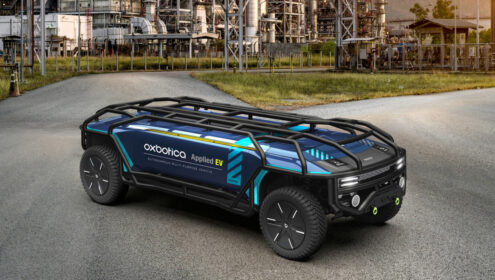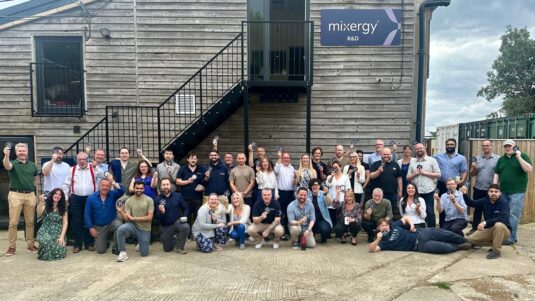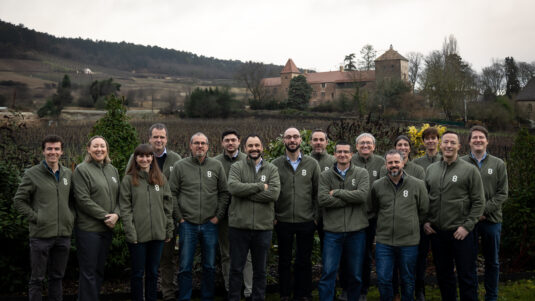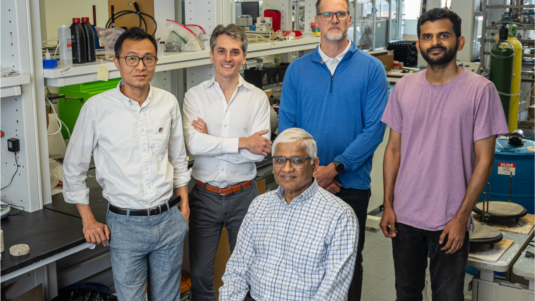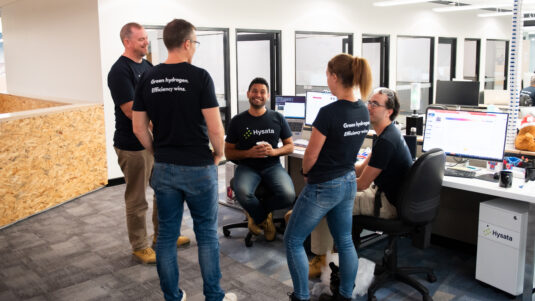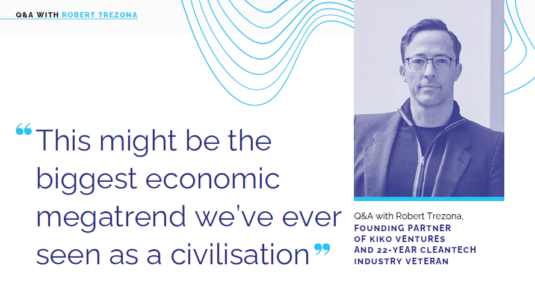For kids growing up in the 80s, an exciting science-fiction future was depicted in shows like Back to The Future and Knight Rider, with voice-activated flatscreen TVs, flying taxis and talking, self-driving sports cars.
But whilst some of those technologies have come to fruition, particularly on the infotainment side of things, transport is yet to attain the promise the filmmakers dreamed of. And that’s despite investors across the world having pumped money into start-ups promising to deliver self-driving cars and flying taxis for passenger use.
At Kiko Ventures we decided early on that autonomous vehicle software offered huge potential, but we envisaged different applications to most investors. Instead of self-driving cars taking us around town, we believe autonomy will initially be deployed in, for example, goods delivery, safety-critical industrial environments and multi-occupancy on-demand urban shuttles.
From an environmental perspective, having computers in charge of vehicles leads to more efficient operation – possibly by as much as a double digit percentage. But the fundamental breakthrough offered by autonomy is in removing the need for a human driver to be sitting in the vehicle.
That breakthrough can deliver a step change in environmental impact: from making a vehicle dramatically lighter and smaller (with corresponding lower emissions) because it is not critical to protect driver or passengers, to making the vehicle available around the clock and on-demand (not requiring tea breaks, sleep or paid holiday).
And in line with this thesis, we were the first institutional investor in Oxa in 2018. We were excited that its application agnostic software would be able to help any vehicle, of any size, to operate autonomously, safely and sustainably. That was the full promise of Oxa’s Universal Autonomy TM. It meant that vehicle manufacturers and service/system operators, who have deep expertise in their respective fields, could do their job really well, while creating partnerships with Oxa whose focus could be on creating world-leading software.
Oxa grew out of Oxford University’s Mobile Robotics Group research and now harnesses advances in artificial intelligence, engineering, machine learning and modular software design.
As early as 2016 it became the first UK company to test autonomy on public roads. Yet Oxa’s inspirational founder Dr Paul Newman knew that private cars wouldn’t be the primary application for autonomy. Because that’s the hardest use case for autonomy and because the autonomy value proposition is stronger elsewhere.
Modern societies have a transport challenge for sure, but adding single-person vehicles driven by a computer into that mix is not the answer. A much stronger use case for autonomous vehicles in cities is multi-occupancy on-demand shuttles, augmenting public transport provision in a safe, sustainable and economically attractive way.
Every single day Oxa is proving and developing its autonomy platform to help big businesses become more effective, reduce their carbon emissions and make the environment in which their people work safer. Take the mining industry where Oxa collaborates closely with Wenco.
On mine sites, safety is paramount and humans drive enormous trucks which makes the value proposition of autonomy particularly strong. Why? Those drivers are expensive, both in wage terms (say $200k p.a.), and the operational costs associated with getting the driver to and from remote sites.
Any way to remove individuals from the mining environment is helpful from a safety perspective but also cheaper for the operator. From an environmental perspective, humans don’t drive efficiently and one of the reasons trucks are so huge is to protect the expensive human at the wheel. By taking them out of the equation, it is possible to use smaller, less gas guzzling vehicles. Finally, the fact that mining takes place in remote, tightly controlled sites means this is an optimum environment in which to deploy autonomy.
From its work with Ocado to its first energy industry trial with BP, Oxa has always prioritized partnership. By developing its software with partners who are experts in their field, either as solution providers and/or vehicle makers, it is already beginning to unlock the value in autonomous vehicles.
There are three benefits which autonomous vehicles will bring to our society:
- Cost effectiveness
- Environmental benefits (through optimised driving and by enabling completely different vehicle archetypes to be used)
- Safety
And Oxa is well on the way to delivering all of those in a variety of applications.
The current economic backdrop is also increasing industry’s desire for Oxa’s solution. The war in Ukraine has caused unprecedented increases in energy costs and with inflating prices in all areas from commodities to wages, the autonomy value proposition is enhanced.
At Kiko Ventures we are committed to creating new possibilities for a regenerative future; we aim to build a portfolio of companies that can have a transformative impact on climate change.
In Oxa, we have found a company that we believe will transform how the world moves. We’re thrilled to welcome the addition of leading investors, both strategic and financial, with this funding round and can’t wait to support the next evolution of the company.
Corporates around the world were already queuing to sign up to work with Paul and CEO Gavin Jackson’s remarkably talented team and we are sure news of this emphatic fundraising round will bring many more to their door.
If entrepreneurship and innovation are key to addressing the challenges our global economy now faces, then Oxa is surely one of the businesses that are leading us out of the gloom.
Congratulations to the whole team on this landmark raise. Bring on the future!
